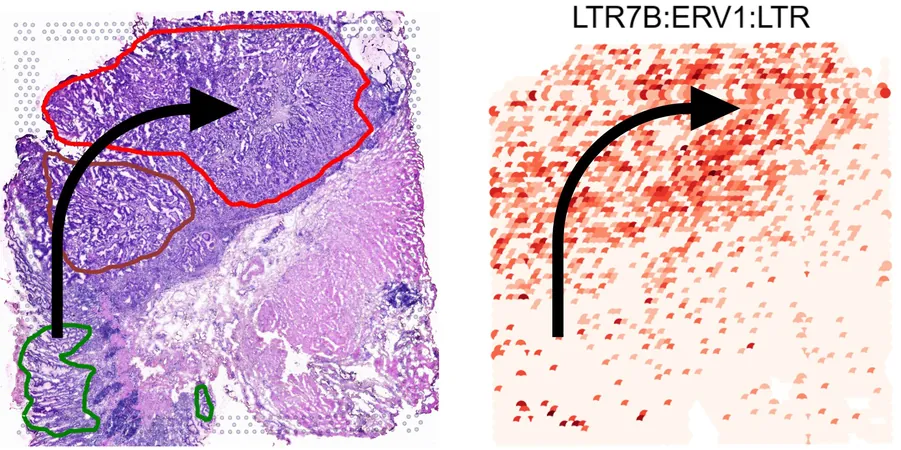
Jumping Genes May Revolutionize Early Detection of Gastric Cancer!
2024-11-18
Author: Arjun
Gastric cancer (GC) is one of the deadliest forms of cancer worldwide, with particularly high rates in regions such as Eastern Asia, Eastern Europe, and South America. Alarmingly, in countries like Chile, gastric cancer has become the leading cause of cancer-related deaths among men. The critical issue with GC is its late diagnosis; once the disease reaches advanced stages, the survival rate plummets to below 10%. In stark contrast, identifying and treating early-stage gastric cancer could boost survival rates to an impressive 90%. This stark discrepancy has sparked a race to find new and innovative approaches for early detection.
In recent groundbreaking research published in Scientific Reports, scientists have turned their attention to transposable elements (TEs), often dubbed "jumping genes," as a potential key in early cancer detection. Historically overlooked due to the computational complexity of studying them, TEs constitute nearly 50% of the human genome and play a significant role in gene regulation. Once considered "junk DNA," the perception of TEs has evolved dramatically since Barbara McClintock's pioneering discoveries, which earned her the Nobel Prize in 1983.
The Role of Jumping Genes in Gastric Cancer
In this study, researchers utilized single-cell RNA sequencing to trace the evolution of cells from a normal state to a malignant one, examining whether TE activation coincided with the emergence of tumorigenic traits. Their efforts revealed that 111 specific jumping genes become activated within malignant cell lineages. They further validated their findings using spatially resolved RNA sequencing data, which displayed active TEs in both tumor tissues and surrounding regions, known as the tumor microenvironment.
The implications of this research are monumental: it indicates that TEs not only play a role in GC but that their activation might occur in the disease's early stages. This discovery positions jumping genes as promising biomarkers for the early detection of gastric cancer, potentially leading to timely interventions that can save lives.
What Lies Ahead?
The next phase of this vital research involves experimental validation to confirm the consistent presence of these TEs during the early stages of gastric cancer. If successful, this could pave the way for revolutionary new diagnostic tools and treatments that could significantly alter the prognosis for those at risk of this aggressive disease.
As more studies are conducted, the scientific community is eagerly watching whether "jumping genes" can indeed become a game-changer in the fight against gastric cancer. Researchers are optimistic that these biomarker discoveries could lead to breakthroughs that extend survival rates and improve early detection practices, ultimately leading to the development of new treatment avenues.
Stay tuned for further updates as this exciting field of research evolves!

 Brasil (PT)
Brasil (PT)
 Canada (EN)
Canada (EN)
 Chile (ES)
Chile (ES)
 España (ES)
España (ES)
 France (FR)
France (FR)
 Hong Kong (EN)
Hong Kong (EN)
 Italia (IT)
Italia (IT)
 日本 (JA)
日本 (JA)
 Magyarország (HU)
Magyarország (HU)
 Norge (NO)
Norge (NO)
 Polska (PL)
Polska (PL)
 Schweiz (DE)
Schweiz (DE)
 Singapore (EN)
Singapore (EN)
 Sverige (SV)
Sverige (SV)
 Suomi (FI)
Suomi (FI)
 Türkiye (TR)
Türkiye (TR)